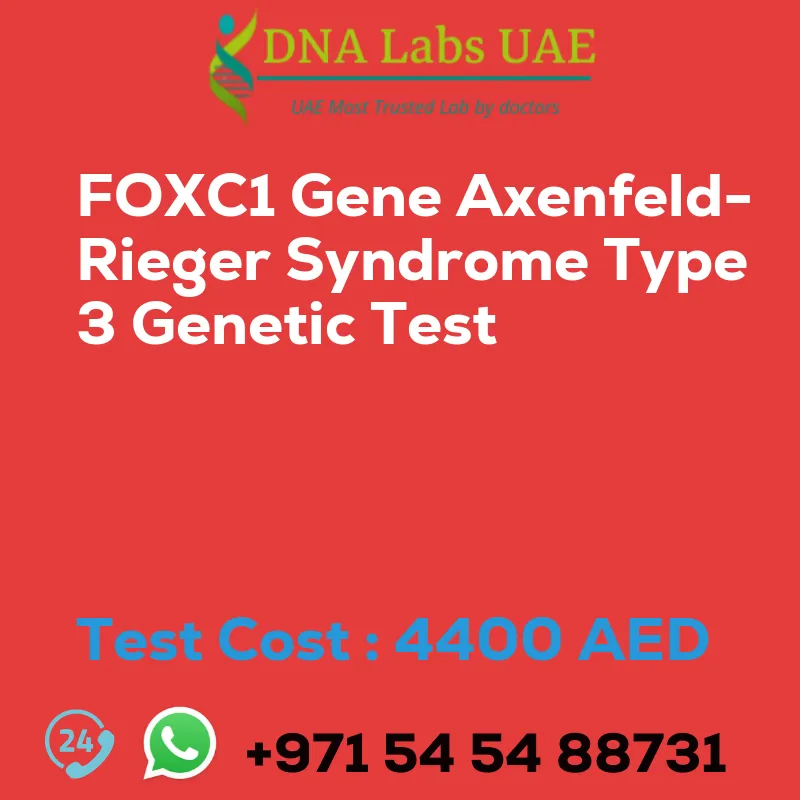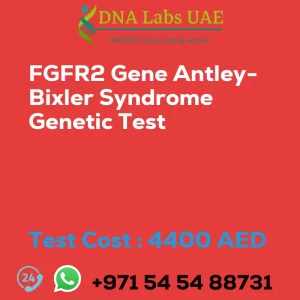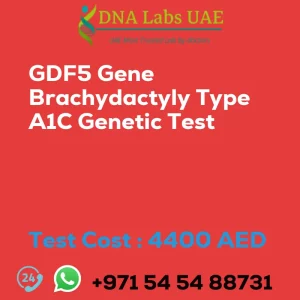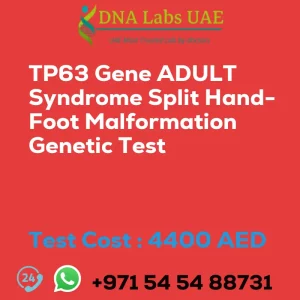FOXC1 Gene Axenfeld-Rieger Syndrome Type 3 Genetic Test
Components: FOXC1 Gene Axenfeld-Rieger Syndrome Type 3 Genetic Test
Price: 4400.0 AED
Sample Condition: Blood or Extracted DNA or One drop Blood on FTA Card
Report Delivery: 3 to 4 Weeks
Method: NGS Technology
Test Type: Dysmorphology
Doctor: Pediatrics
Test Department: Genetics
Pre Test Information: Clinical History of Patient who is going for FOXC1 Gene Axenfeld-Rieger Syndrome Type 3 NGS Genetic DNA Test. A Genetic Counselling session to draw a pedigree chart of family members affected with FOXC1 Gene Axenfeld-Rieger Syndrome Type 3 NGS Genetic DNA Test gene FOXC1
Test Details
The FOXC1 gene is associated with Axenfeld-Rieger Syndrome Type 3, which is a rare genetic disorder characterized by abnormalities in the development of the eyes, teeth, and facial features.
NGS (Next-Generation Sequencing) genetic testing is a type of genetic testing that allows for the analysis of multiple genes simultaneously. In the case of Axenfeld-Rieger Syndrome Type 3, NGS can be used to analyze the FOXC1 gene for any mutations or variations that may be responsible for the disorder.
NGS genetic testing involves collecting a sample of DNA, typically through a blood sample or saliva swab, from the individual undergoing testing. The DNA is then sequenced using advanced technology, which reads the genetic code and identifies any variations or mutations in the FOXC1 gene.
By identifying specific mutations or variations in the FOXC1 gene, NGS genetic testing can provide a definitive diagnosis of Axenfeld-Rieger Syndrome Type 3. This can be helpful in guiding medical management and treatment options for individuals with the condition. Additionally, it can provide valuable information for family members who may be at risk of inheriting the disorder.
It’s important to note that genetic testing should always be performed and interpreted by qualified healthcare professionals, such as geneticists or genetic counselors. They can provide guidance on the implications of test results and help individuals and families make informed decisions regarding their healthcare.
| Test Name | FOXC1 Gene Axenfeld-Rieger syndrome type 3 Genetic Test |
|---|---|
| Components | |
| Price | 4400.0 AED |
| Sample Condition | Blood or Extracted DNA or One drop Blood on FTA Card |
| Report Delivery | 3 to 4 Weeks |
| Method | NGS Technology |
| Test type | Dysmorphology |
| Doctor | Pediatrics |
| Test Department: | Genetics |
| Pre Test Information | Clinical History of Patient who is going for FOXC1 Gene Axenfeld-Rieger syndrome type 3 NGS Genetic DNA Test. A Genetic Counselling session to draw a pedigree chart of family members affected with FOXC1 Gene Axenfeld-Rieger syndrome type 3 NGS Genetic DNA Test gene FOXC1 |
| Test Details |
The FOXC1 gene is associated with Axenfeld-Rieger syndrome type 3, which is a rare genetic disorder characterized by abnormalities in the development of the eyes, teeth, and facial features. NGS (Next-Generation Sequencing) genetic testing is a type of genetic testing that allows for the analysis of multiple genes simultaneously. In the case of Axenfeld-Rieger syndrome type 3, NGS can be used to analyze the FOXC1 gene for any mutations or variations that may be responsible for the disorder. NGS genetic testing involves collecting a sample of DNA, typically through a blood sample or saliva swab, from the individual undergoing testing. The DNA is then sequenced using advanced technology, which reads the genetic code and identifies any variations or mutations in the FOXC1 gene. By identifying specific mutations or variations in the FOXC1 gene, NGS genetic testing can provide a definitive diagnosis of Axenfeld-Rieger syndrome type 3. This can be helpful in guiding medical management and treatment options for individuals with the condition. Additionally, it can provide valuable information for family members who may be at risk of inheriting the disorder. It’s important to note that genetic testing should always be performed and interpreted by qualified healthcare professionals, such as geneticists or genetic counselors. They can provide guidance on the implications of test results and help individuals and families make informed decisions regarding their healthcare. |







